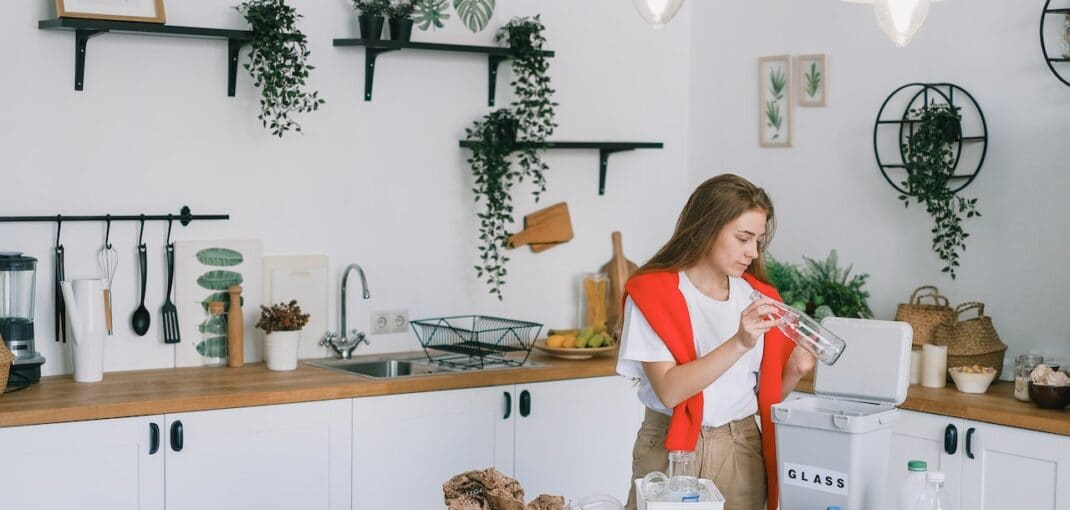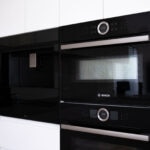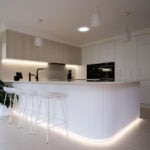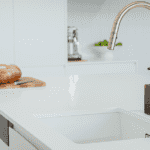Sustainability and environmental conservation are becoming increasingly important aspects of home design. Homeowners are seeking ways to incorporate eco-friendly materials and design principles into various areas of their homes, including their kitchens.
At CK Cabinetry, we understand the importance of creating sustainable spaces and are committed to offering environmentally conscious materials and design choices to help you build the green kitchen of your dreams.
In this article, we will explore various environmentally-sensitive materials that can be used for custom cabinets and identify design elements that support a sustainable kitchen. Integrating these materials and concepts into your kitchen design can contribute to a healthier planet while enjoying a stylish and functional space.
By understanding the unique characteristics and benefits of sustainable materials and design elements, you can create a kitchen that not only looks beautiful but also contributes to a greener future. CK Cabinetry is your partner in designing eco-friendly spaces, ensuring that your bespoke cabinets align not only with your aesthetic preferences but also your commitment to a better environment. Let’s explore how you can build the sustainable kitchen you’ve always envisioned.
Creating a Sustainable and Eco-friendly Kitchen: Integrating Environmentally Conscious Materials and Design
Embracing sustainable and eco-friendly practices is essential in today’s world. This article will delve into various environmentally-friendly materials and design elements to help you create the perfect sustainable kitchen with custom cabinets from CK Cabinetry.
1. Sustainable Cabinet Materials: The Foundation of a Green Kitchen
Choosing sustainable materials for your custom cabinets is an effective way to minimise your environmental impact. Let’s explore several eco-friendly options:
- FSC-certified wood: Sourced from responsibly managed forests, this wood is certified by the Forest Stewardship Council (FSC), ensuring that the timber is harvested in a sustainable manner.
- Bamboo: As a fast-growing and renewable grass, bamboo is a popular eco-friendly alternative to hardwood. Its unique appearance, strength, and durability make it an attractive choice for cabinets.
- Recycled materials: Reclaimed wood, recycled metal, and composite boards made from recycled paper products can be repurposed into beautiful custom cabinets without contributing to deforestation or resource depletion.
- Low-VOC finishes: Selecting low-Volatile Organic Compound (VOC) paints, lacquers, and adhesives is crucial for maintaining healthy indoor air quality and reducing environmental damage. These finishes emit fewer harmful pollutants, promoting a safer kitchen environment.
2. Energy-Efficient Design: Saving Energy and the Environment
An energy-efficient kitchen layout can significantly reduce energy consumption, lowering utility bills while minimising carbon footprint. Consider the following ideas for an energy-smart design:
- Natural light: By maximising natural light through window placements and skylights, you can reduce your reliance on artificial lighting during the day.
- LED lighting: Opt for energy-efficient LED light fixtures for better illumination and reduced energy usage compared to traditional incandescent or halogen lights.
- Optimised layout: Design your kitchen layout thoughtfully to minimise travel between work areas, reducing energy expenditure. A well-planned kitchen design also simplifies your daily tasks.
- Energy-efficient appliances: Invest in energy-saving kitchen appliances with a high Energy Star rating, cutting down on energy consumption and providing long-term savings.
3. Waste Reduction and Recycling Solutions: Custom Cabinetry for Sustainable Disposal
Designing a more sustainable kitchen extends beyond materials and energy usage – waste reduction and recycling are equally important. Custom cabinet solutions can help make waste management more manageable and accessible:
- Recycling and composting hubs: Designate particular cabinet spaces for recycling bins and composting containers. Create pull-out drawers or separate compartments within your cabinets for easy access and organisation.
- Space-saving waste storage: Consider installing compact waste-storage solutions behind cabinet doors or incorporating built-in waste bins into your cabinetry design. This way, waste management is integrated seamlessly into your kitchen.
4. Sustainable Kitchen Countertops: Eco-friendly Materials for a Green Kitchen
Eco-friendly countertops should complement your custom cabinet design. These materials provide a perfect blend of sustainability, visual appeal, and durability:
- Recycled glass countertops: Made from post-consumer or post-industrial glass, these countertops are an attractive, eco-friendly choice. They come in a variety of colours and textures and provide longevity.
- Salvaged wood: Repurposing reclaimed wood for your countertops is an excellent way to utilise a sustainable resource and infuse character into your kitchen.
- Composite materials: Environmentally-friendly composite countertops are made from recycled paper, glass, or stone. They come in various styles, colours, and finishes to suit your design preferences.
Conclusion
Creating an eco-friendly kitchen is achievable with the right materials, design, and custom-made cabinetry solutions. By partnering with CK Cabinetry, you can bring your sustainable kitchen vision to life, combining functionality, aesthetics, and environmental responsibility.
By carefully selecting materials, energy-efficient design, waste management solutions, and earth-friendly countertops, you can create a kitchen space that is beautiful and functional and supports a greener future. If you are ready to embrace environmentally-conscious living and create a sustainable custom kitchen, contact CK Cabinetry today to start your journey.





